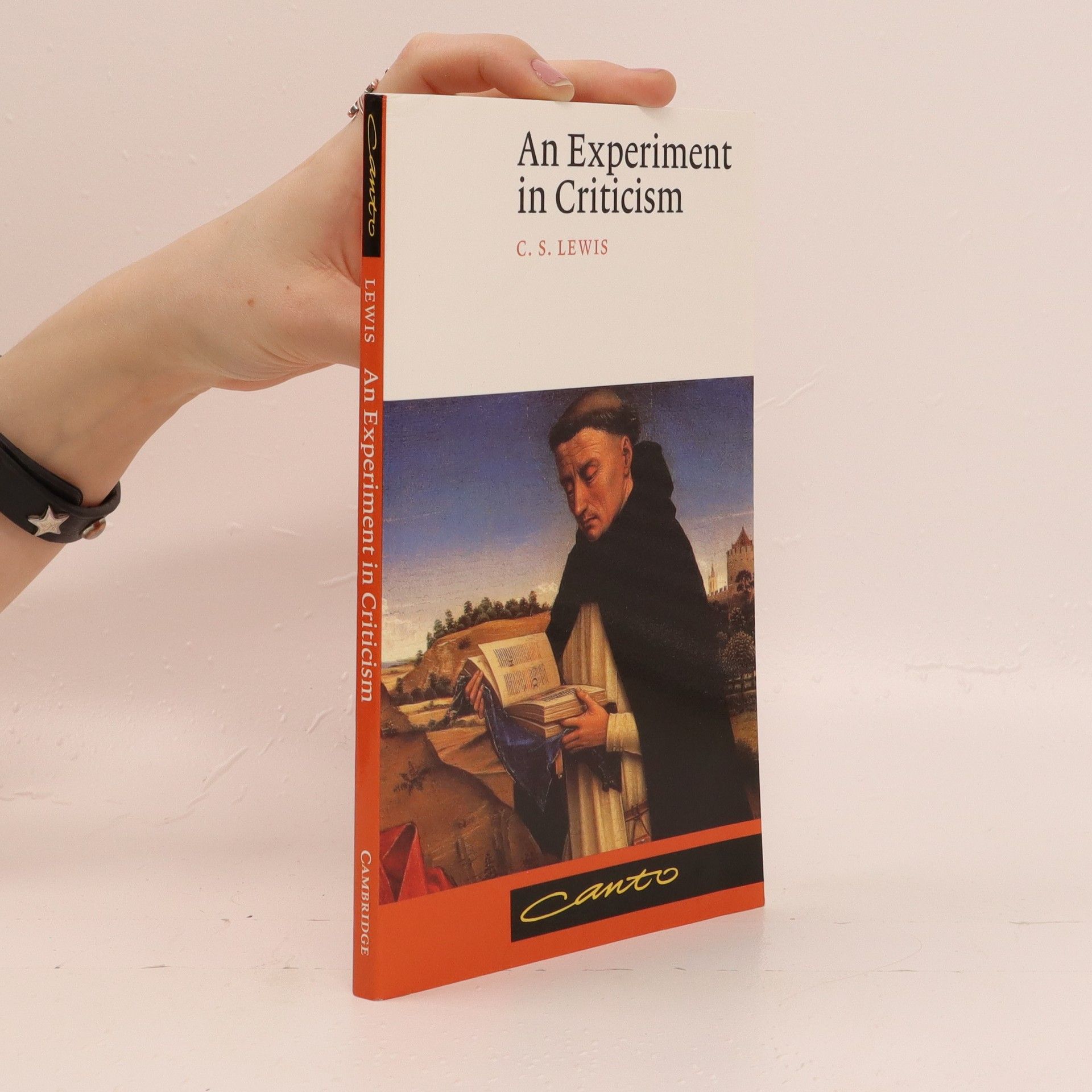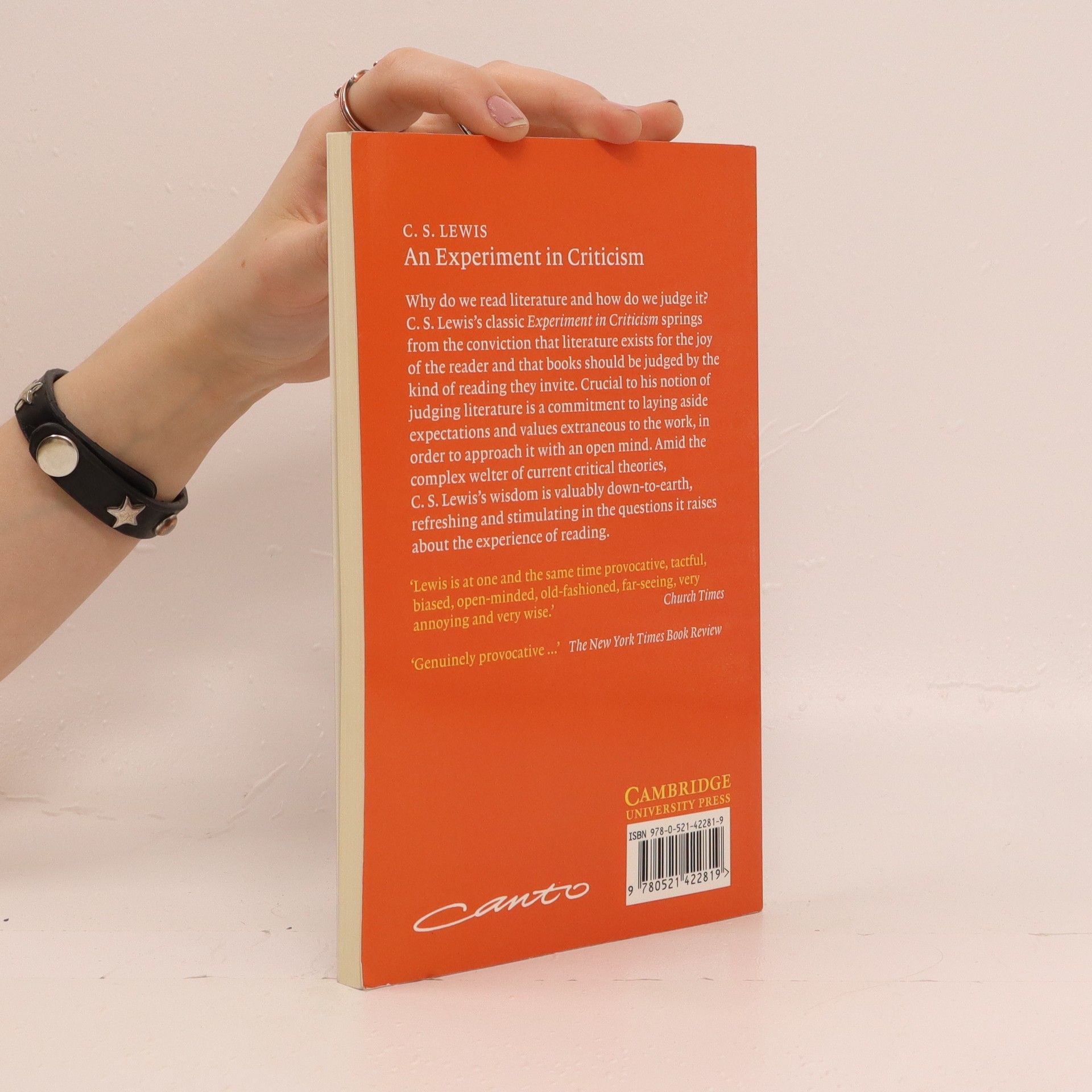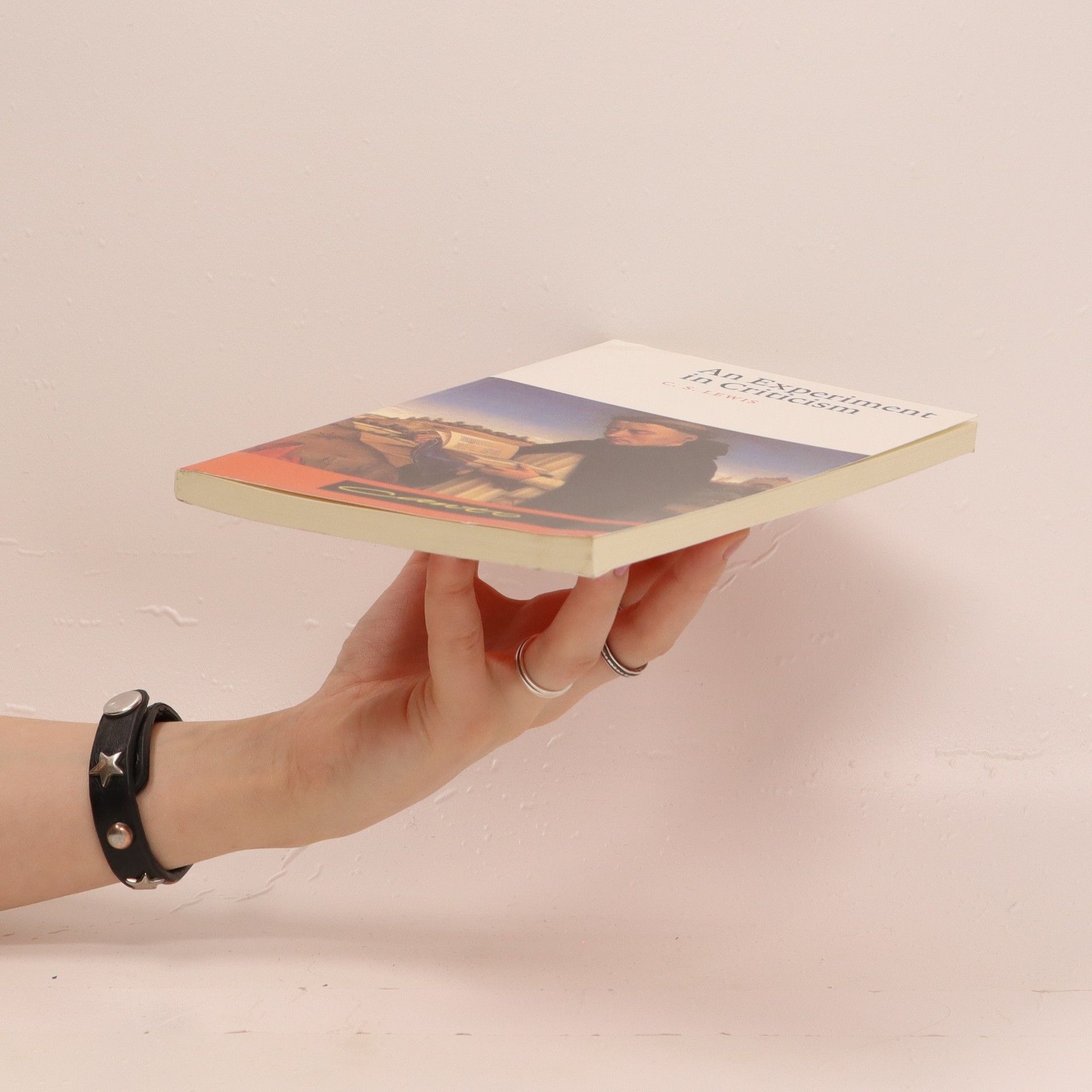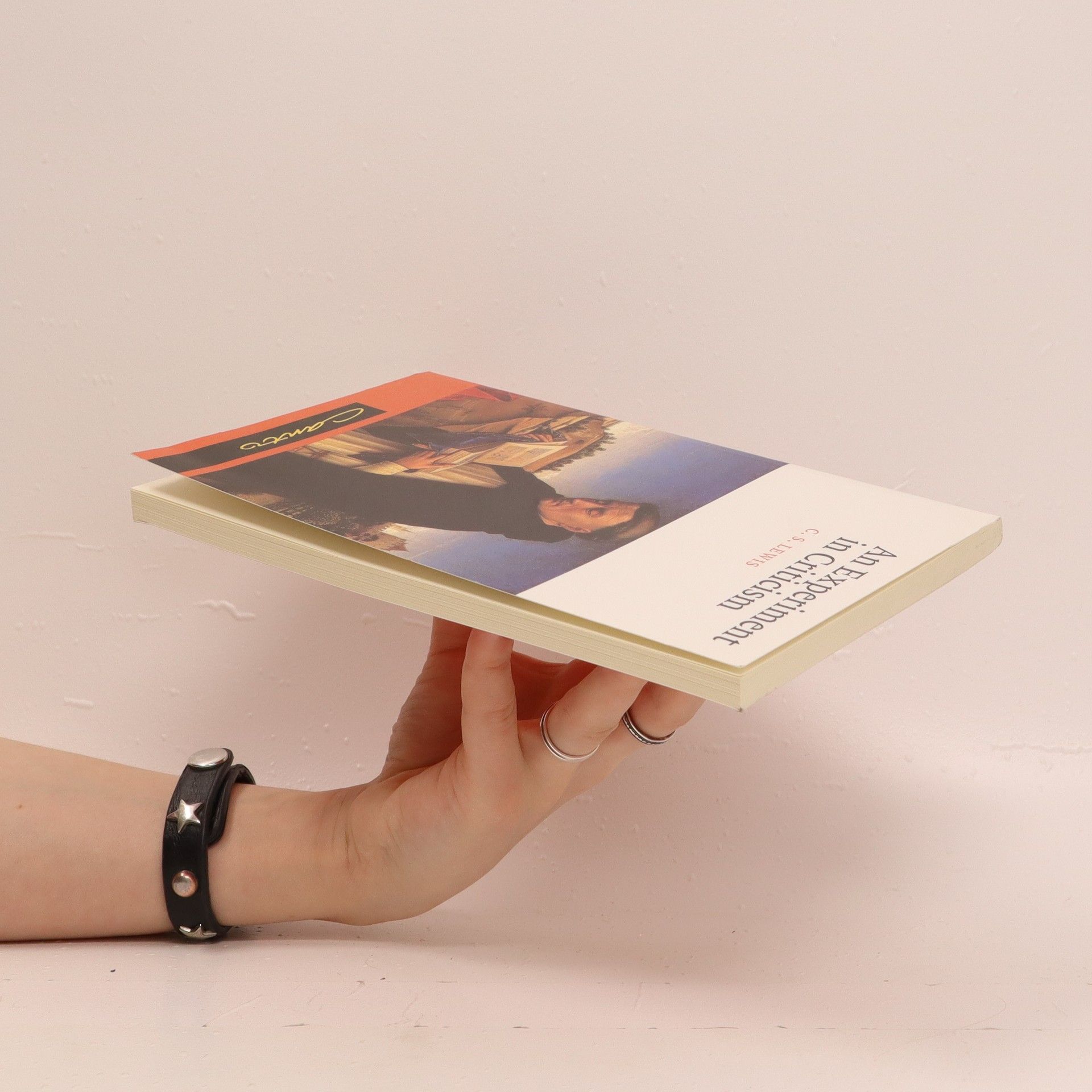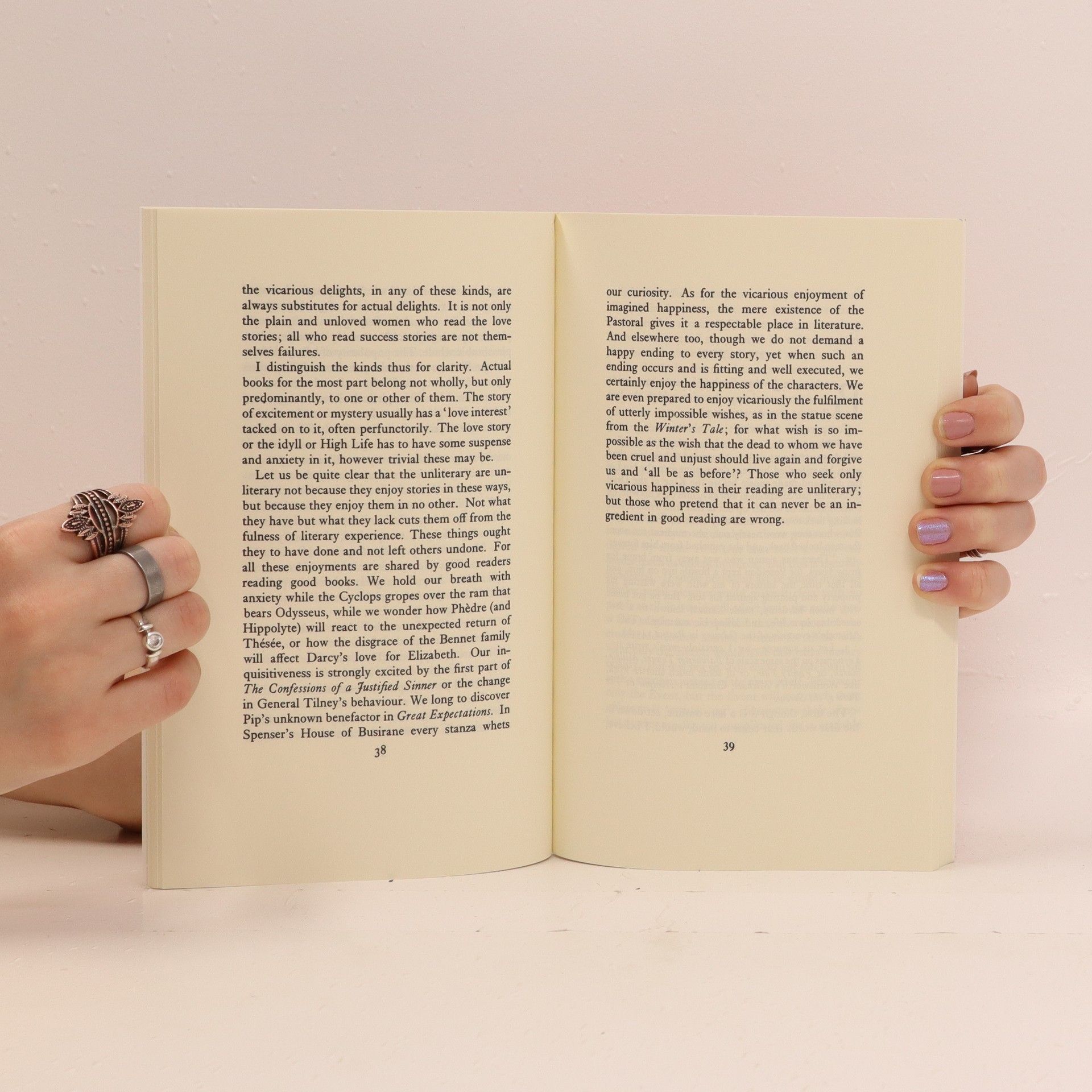Mehr zum Buch
"Professor Lewis believed that literature exists above all for the joy of the reader and that books should be judged by the kind of reading they invite. He doubted the use of strictly evaluative criticism, especially its condemnations. Literary criticism is traditionally employed in judging books, and 'bad taste' is thought of as a taste for bad books. Professor Lewis' experiment consists in reversing the process, and judging literature itself by the way men read it. He defined a good book as one which can be read in a certain way, a bad book as one which can only be read in another. He was therefore mainly preoccupied with the notion of good reading: and he showed that this, in its surrender to the work on which it is engaged, has something in common with love, with moral action, and with intellectual achievement. In good reading we should be concerned less in altering our own opinions than in entering fully into the opinions of others; "in reading great literature I become a thousand men and yet remain myself". As with all that Professor Lewis wrote, the arguments are stimulating and the examples apt"--Publisher description.
Buchkauf
An experiment in criticism, C. S. Lewis
- Sprache
- Erscheinungsdatum
- 1992
Hier könnte deine Bewertung stehen.
